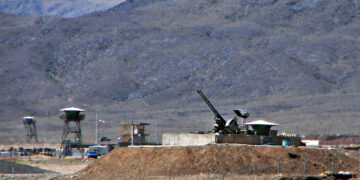November 4, 2025
A U.S.-Saudi Arabia security pact is a terrible idea

With Saudi Crown Prince Mohammed bin Salman set to visit the United States in November, reports suggest Washington and Riyadh are developing a new security pact. They hope to sign the agreement during the Saudi royal’s trip, further tying the United States to the Middle East’s security infrastructure. This effort is foolish, dragging American forces deeper into a historically unstable region where U.S. involvement has typically exacerbated problems—not solved them.
Ultimately, a security pact akin to the recent agreement with Qatar, following Israel’s illegal strike targeting negotiators in Doha in early September, contradicts how Washington should approach its Middle East strategy. That deal commits Washington to take “all lawful and appropriate measures—including diplomatic, economic, and, if necessary, military—to defend the interests of the United States and of the State of Qatar and to restore peace and stability.”
While considered a “NATO-light” defense-security pact, the agreement carries serious implications, especially if a similar deal is signed with Riyadh. The nature of the U.S.-Saudi Arabia relationship is concerning in and of itself, with the Kingdom regularly taking overtly risky foreign policy decisions in recent decades with the understanding that it has U.S. security guarantees. That dynamic produced the disastrous humanitarian situation in Yemen, where U.S. forces and resources fueled a brutal Saudi-led bombing campaign that killed tens of thousands of Yemeni civilians and arguably bolstered the Iran-backed Houthi Movement in the country.
Indeed, at a time when the Middle East is facing generational waves of violence amid the regionalization of the ongoing Israel-Hamas war in Gaza, the Trump administration does not need to deepen security coordination with the Gulf monarchies—let alone any brutal, autocratic government in the region – to achieve its narrow interests in the Middle East. In fact, their track record suggests the opposite.
More on Middle East

November 4, 2025

Featuring Rosemary Kelanic
October 16, 2025
Events on Middle East







